As YouTube celebrates its 15th birthday, we talk to five early adopters about how the all-singing all-dancing platform has evolved
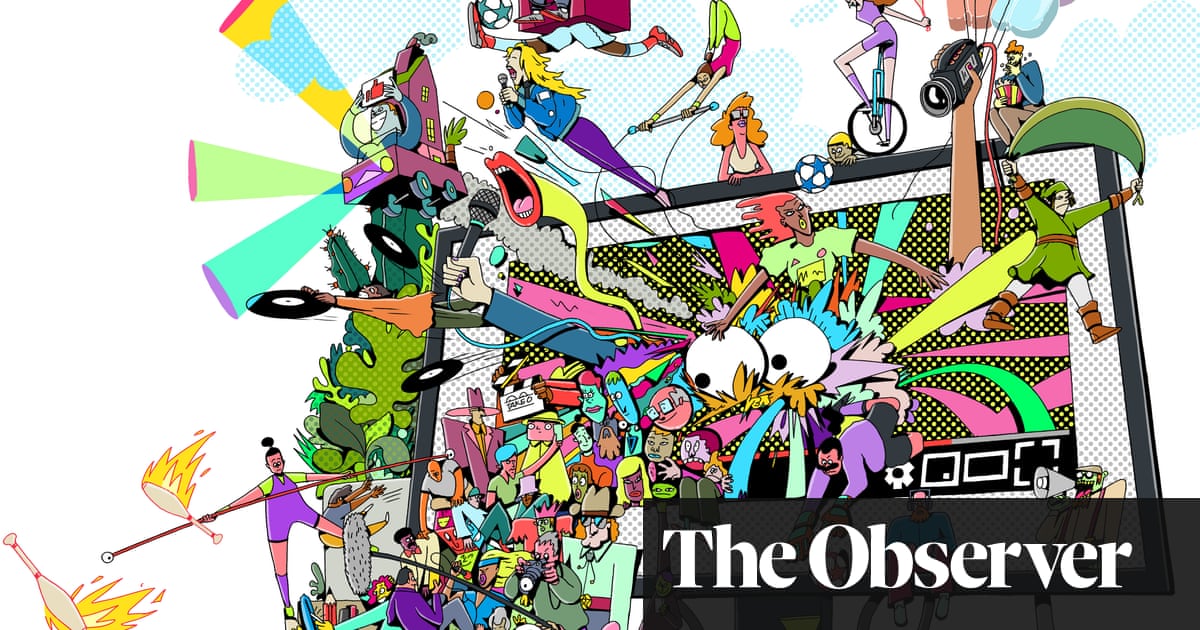
Late on the evening of 14 February 2005, Jawed Karim, Chad Hurley and Steve Chen registered the website YouTube.com. Two months later, when the first video (of Karim briefly describing the elephant enclosure at the San Diego Zoo) was uploaded, a platform was launched that has gone on to change the world.
Today, more than 2bn of us visit YouTube monthly, and 500 hours of footage is uploaded every minute. Thats a far cry from the 18-second video that started it all. Its stars are multi-millionaires: YouTubes highest earner in 2019 was an eight-year-old called Ryan, who netted $26m. The number of creators earning five or six figures has increased by more than 40% year on year. At first, users earned a few hundred pounds for mentioning products in their videos; now they can make hundreds of thousands, and much more through exclusive brand deals. Not many like talking about their income: it makes them less relatable.
The scale of viewership has increased, too. It took eight years for the site to get to 1bn monthly users, and another seven to reach 2bn. There are 65% more channels with more than 1m subscribers than a year ago; the number of channels with more than 1bn views grew five times in the past three years.
As more money and more eyeballs have entered the frame, the level of competition has increased. What was once a site for hobbyists has turned into a mini-Hollywood, with huge teams of staff churning out content for demanding fans.
As the website celebrates its 15-year anniversary, five of its significant early stars explain how their relationship with the site has evolved.

Olga Karavaeva, 37
I created a character a lot of girls could relate to
A friend uploaded some videos on to YouTube in 2006, and he asked me to make an account so I could support him. The site was only a year old then, and I didnt understand the concept. I used to think it was called U2.com I couldnt understand why a band would have a website that hosted videos. Finally, someone spelled it out for me, so I logged in and created an account. OlgaKay was the password to my bank account at the time, so I used that. It was the first thing that came to mind.
I was mesmerised by these people talking to the camera. Id never seen that before. I was so inside their world. I remember thinking: I have a personality I could share, maybe I could do this. Maybe I could do it better
The problem was that back then I didnt know how to create content. My background was in the circus. I was a juggler, somewhat familiar with live performances, but I didnt know how to be on camera. It was a huge learning curve, trying to figure out what this whole thing was about, and building a career. I created this character of an emo girl who hated everything about her life. I played that character, then I played myself as her roommate. One character was positive, one was negative. I think a lot of young girls could relate to that.
By 2014 I had 1m subscribers andwas producing 23 videos a week. My main channel was scripted content, highly produced. The second channel was a daily documentary, to which I uploaded at least five videos a week, and then I had a fashion and beauty channel (three videos a week) and a gaming channel (14 videos a week). I covered all the bases and all the genres on YouTube, but I was making so many videos that I was burned out. I realised that to continue to be successful on YouTube I had to keep pumping out content. I felt like my creativity was slipping away. I pictured myself running a production company, creating more and more content, trying to stay relevant among teenagers. I thought: I dont want to be a 40-year-old woman still making content. I didnt want to be someone who has to wake up every morning and put makeup on to go in front of the camera.
In 2016, I stepped away and took a long hiatus, during which time my audience disappeared. I wasnt uploading regularly enough. In that time I read a lot of books. I read The Success Principles by Jack Canfield four times, which rewired my brain.
I woke up one day thinking, I am an entrepreneur, I want to create a business. That business became Moosh Walks: knee-high socks with ears. That same year I opened a pop-up shop in Los Angeles, where I live, to see how my product performed outside my fanbase. Now were in 130 stores across America, and were on Amazon, and were growing. YouTube gave me this. It gave me knowledge and experience.
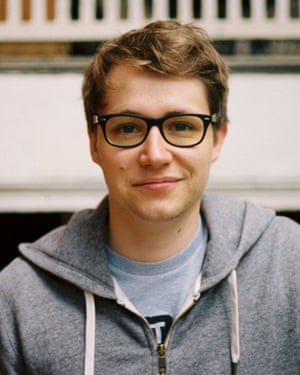
Charlie McDonnell, 29
My first film was 6 minutes long. It was just a rambly mess
I got on to YouTube in 2007 by procrastinating. This was when nobody was making any real money from YouTube. It hadnt started its partnership programme. I started my own channel because I wanted to make a short film with a friend, a parody of one of the Legend of Zelda games. We never actually made it, but we made a bad trailer for it Windows Movie Maker titles, copy- righted music. Then I set up a series called Fun Science and tried to answer questions about the world.
After I launched the channel, I found other video bloggers and realised that this was a thing people were doing. The webcam I had then cost 15, and the videos were awful quality. The first video blog I made was six minutes long, which at the time was a silly length. Youd never make one that long now. It was just a rambly mess.
When I started, I think [sketch comedy channel] Smosh was the sites most subscribed-to channel, with maybe 100,000 subscribers. So it feels weird to hear that so many kids these days see becoming a YouTuber as one of their main career aspirations. That didnt exist back in 2007.People saw it as a hobby. Thats been one of the major, weirder shifts.
In 2017 I moved to Canada with my girlfriend. I was ready to leave the UK. Theres that phrase: if youre sick of London, youre sick of life. I was honestly sick of London. Id kind of stopped video blogging by that point, even though I had millions of subscribers. Id already burned out once before, in 2013, and then found it hard to upload a new video every week. I realised I felt much happier not being on camera, and I felt increasingly as if I was putting on a mask and being somebody else. Viewers equated my digital presence with my real-life one. Thats one of the things I know about myself now: I find it much more creatively fulfilling to be working behind the scenes.
Around the time I moved to Toronto, I began working with New Form, a production company that works with video bloggers who are interested in filmmaking. A show I made was picked up by Jeffrey Katzenberg, a Hollywood bigwig, who has no idea who I am in terms of my YouTube career. (It stars Don Cheadle, and will be out next year.)
I have a few different feature scripts Im working on, ideas for TV pilots. Im working the filmmaker grind. I havent ruled out coming back to YouTube entirely, but I think if I ever do come back, I want it to be what it used to be more of a hobby, a creative outlet. Id have a proper job elsewhere. I definitely used to see YouTube as my proper job. I had 2m subscribers! But I guess it isnt for me any more.
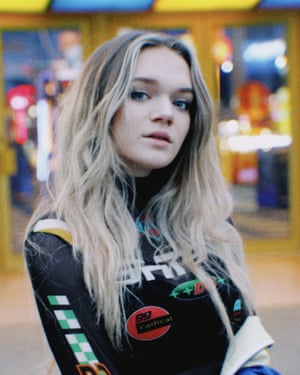
Sapphire, 17
Without YouTube I wouldnt be making my own music
I started on YouTube 10 years ago, when I was seven. All I did back then was sing my dream at the time was to become the next Adele but I never really had a platform. My mum suggested doing YouTube. It was only a few years old at that point, and I was over-the-moon excited about it. I drew pictures of what I would look like on screen.
I did my first video and just got hooked, and then did it again and again and again. Here we are, 350 videos later. When I filmed that first video, I was really nervous. I thought that if I wore the same outfit out in the street people would recognise me instantly, even though I had, like, three subscribers. I got more than 100 views on that first video in a week, and it just went up from there. I had my first viral video three videos later, a cover of Hallelujah. It grew and grew.
It started turning serious when I was nine. We went from using an old Canon camcorder to a proper, professional camera, and weve upgraded again to a completely new one, though its still a family production. My videos go out on a Friday. On Monday Ill pick a track, one with the most views at that moment, or a classic song everybody knows. Then well get a track made it will take me a few hours to record and every Wednesday we film a video. That will either be a whole day or half a day. Then well edit it the next day and its straight out for Friday. Sometimes well do full production videos with dancers and all sorts. Theyre big, two-day shoots.
Im not interested in being a superstar or whatever. I just like making music and content, and making people happy. But weve done so much. I got to perform at Wembley Arena when I was about 11. That was definitely one of my favourite moments: getting to walk out on the stage and say Hello, Wembley! In Germany I performed in front of 17,000 people, which was insane.
YouTubes helped me get to the point where I can write and produce my own music and release it to the public. Thats just the best feeling in the world. Without YouTube I never would have got to that point, never would have had those opportunities. Without it Id be nothing right now. I cant imagine a life without YouTube. It has its ups and downs, when theres too much going on, when youre juggling school and your digital presence, and you have to try to fit everything in. But at the end of the day its all moving me towards this one goal to one day tour the world.
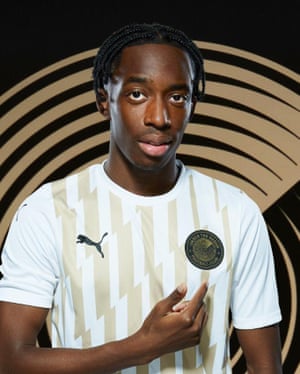
Emmanuel Manny Brown, 23
It was embarrassing to be known for playing Fifa online
When I was younger, it was a cool thing to record and capture the video games you were playing. I remember asking my mum for an HD PVR, which captured game console footage and uploaded it to the internet. It was 175 back then a lot of money but she said yes. My brother Tobi [YouTuber Tobjizzle] ended up taking it first and recording stuff. He knew more about it. I joined about a year later, in 2013. I was 17.
I thought it would be easy, but I quickly learned it was a grind. You had to get your own content out, have your own ideas, develop your own personality. When I was on 2,500 subscribers I was walking through school and a kid said to me: Arent you Manny from YouTube? That shook me. It was almost embarrassing to be known for playing Fifa online, especially in sixth form. I dont know when I realised I was popular.
When I had 7,500 subscribers I made around 10 per video from Fifa sponsorships. But in August 2015 I started getting more views and more brand deals. I remember [fellow YouTuber] Miniminter saying to me: In six months youll be earning a lot. I never thought of it that way, but he was more experienced, and knew the levels I could get to.
I dropped out of an accounting and finance course at university when I got to 60,000 subscribers. The accounting and finance skills would come in useful now, but I didnt stay long enough balancing uni and YouTube was difficult. Within a month of dropping out I hit 100,000 subscribers, and from there it grew rapidly 30,000 new subscribers a month. Now I have 1.7m.
At the start of every year I ask: can I do this for another 12 months? Most years, the answer is no. Its getting tough its difficult to keep up the consistency. At times Ive stopped posting every day, and sometimes I fall out of love with it. But my videos are seen by 250,000 people a day. Im back to my most consistent now, almost doing daily uploads. My last 50 videos have been posted in the last 57 days. It can be draining, but Im trying to find a balance.
YouTube has changed in many ways. Theres a lot of things I do now that get half the number of the views it would have got when I started. It was a lot easier to get views with less back then. Now, its all about the titles and the thumbnails and making sure everythings clickable. If its not clickable, it wont get the views. You dont need to make good content to get views on YouTube these days.
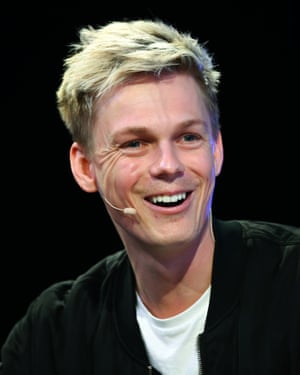
Caspar Lee, 25
I decided to help others who were doing their own videos
I started in a small town called Knysna, in South Africa. It was 2010 and I was 16. I did it because I wanted to impress the other kids at school; I thought it would be cool for them to watch videos Id made. But it had the opposite effect everyone thought it was lame. For two years I was that weird YouTube kid, creating weird videos about my life.
In 2012, my final year of school, Id earned enough to become a full-time YouTuber and move to London. The goal wasnt to stay there for very long it was just to work with other creators and build an audience. But it eventually evolved into the place I spend most of my time. Now Ive got 7m subscribers. People watch me do challenges: bleach my hair, or live in my car. If youd asked me when I started, I wouldnt have thought that many people would even be using YouTube. A big channel used to have 1m subscribers. Now they have 100m.
Theres always a natural insecurity when it comes to doing well in something. You ask yourself: how long can this last? So a way of protecting myself was to diversify away from just making my own content. As someone with experience on the platform, I decided to help other creators who were beginning to monetise their videos. I set up a company called Influencer with a guy called Ben Jeffries.
A girl I went on a Tinder date with introduced me to Ben so I guess you could say we were a Tinder success story. We started Influencer with the goal of providing creators with another form of income it allows people to earn money from product mentions in their content. We have more than 7,000 creators on our platform.
I also set up a talent management company called Margravine Management, with Joe Sugg, my business partner and good friend, and the Creative Investment Club, which invests in startups alongside some of the best venture capitalists in the UK. (I know a lot of creators who want to invest in startups.)
Im not the chief executive of all these companies. I find someone who can fulfil that role who is really good and then I go into business with them. Its similar to the early days of YouTube you meet people and find a way to collaborate.
I still consider myself as more of a creator. But in terms of how I spend my time, its three days a week on the business stuff, two days on YouTube. I really want to find a way to combine the two. My content hasnt really been so much about the business side of my life. But Id love to be able to speak more about it with my audience and develop a new audience interested in becoming entrepreneurs or starting a company.


Recent Comments